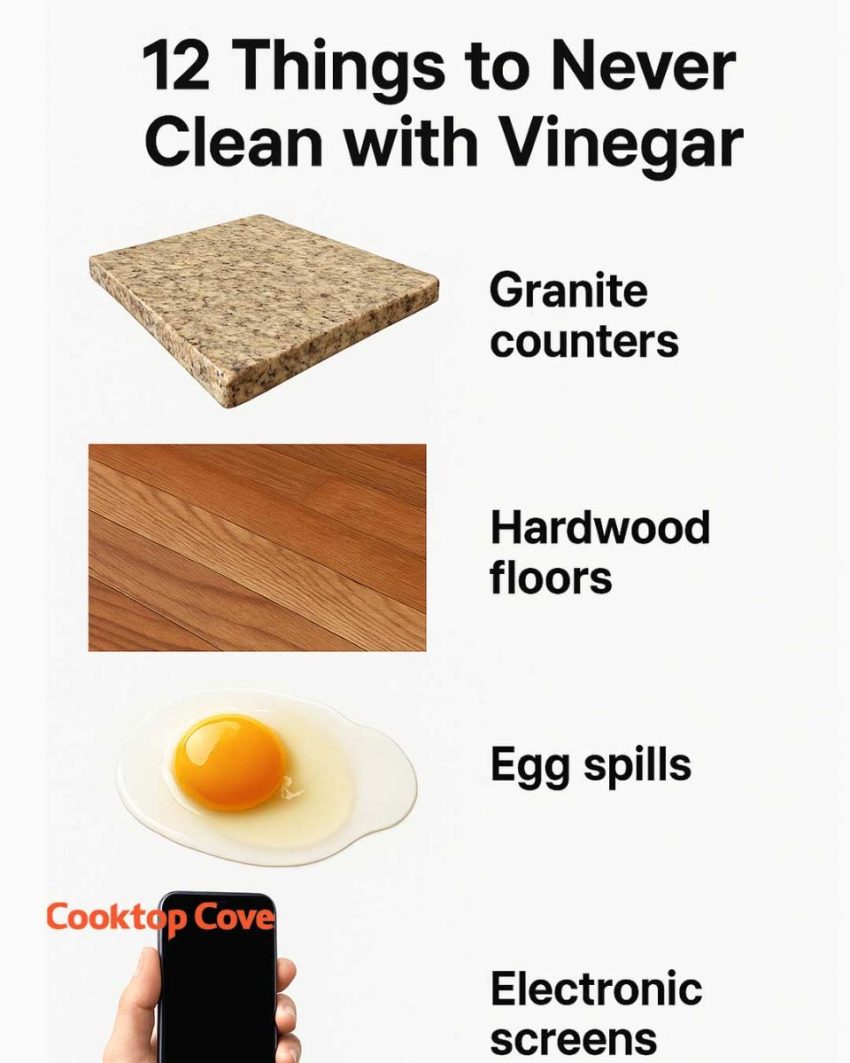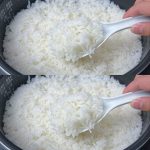ADVERTISEMENT
1. Granite Countertops: Protecting the Shine
Granite countertops are a popular choice for kitchens due to their durability and elegant appearance. However, vinegar is highly acidic and can dull the finish of granite over time. The acid in vinegar can etch the surface, leading to a loss of shine and potentially causing permanent damage.
To clean granite countertops safely, use a pH-balanced cleaner specifically designed for stone surfaces. Alternatively, you can mix a small amount of dish soap with warm water and use a soft cloth to wipe down the surface. This will help maintain the luster and longevity of your granite countertops without risking damage.
2. Hardwood Floors: Avoiding Damage
Hardwood floors add warmth and beauty to any home, but they require careful maintenance to preserve their finish. Vinegar, with its acidic nature, can strip away the protective coating on hardwood floors, leaving them vulnerable to scratches and moisture damage.
Instead of vinegar, opt for a cleaner specifically formulated for hardwood floors. These cleaners are designed to gently remove dirt and grime without harming the finish. Regular sweeping and occasional damp mopping with a suitable cleaner will keep your hardwood floors looking their best.
3. Egg Spills: Preventing a Sticky Mess
When dealing with egg spills, vinegar is not your friend. The acid in vinegar can cause the proteins in eggs to coagulate, making the spill even more difficult to clean. This can result in a sticky, stubborn mess that is hard to remove from surfaces.
To clean up egg spills effectively, use a mixture of warm water and mild dish soap. Apply the solution to the spill and gently wipe it away with a cloth or sponge. This method will help break down the proteins without causing them to set, making cleanup much easier.
4. Electronics Screens: Safeguarding Your Devices
The screens of electronic devices, such as smartphones, tablets, and televisions, are coated with a thin layer of protective material to reduce glare and fingerprints. Vinegar can strip away this coating, leading to a diminished viewing experience and increased vulnerability to scratches.
To clean electronic screens safely, use a microfiber cloth slightly dampened with water or a cleaner specifically designed for electronics. Avoid using paper towels or rough fabrics, as these can scratch the screen. Regular gentle cleaning will help maintain the clarity and longevity of your device screens.
5. Stone Floors: Preserving the Surface
Stone floors, such as those made from limestone, travertine, or slate, are susceptible to damage from acidic substances like vinegar. The acid can etch the surface, leading to dullness and potential structural weakening over time.
To clean stone floors, opt for a pH-neutral cleaner that is safe for natural stone. Regular sweeping and mopping with the appropriate cleaner will help maintain the beauty and durability of your stone flooring without risking damage.
6. Iron: Preventing Corrosion
Iron is prone to rust and corrosion when exposed to acidic substances, and vinegar is no exception. Using vinegar to clean iron surfaces or tools can accelerate the rusting process, leading to deterioration and reduced functionality.
To clean iron items, use a mixture of mild detergent and water. After cleaning, ensure the item is thoroughly dried to prevent moisture from causing rust. For stubborn rust spots, consider using a rust remover specifically designed for iron.
7. Waxed Furniture: Maintaining the Finish
Waxed furniture has a protective layer that enhances its appearance and protects the wood beneath. Vinegar can dissolve this wax coating, leaving the wood exposed and vulnerable to damage.
To clean waxed furniture, use a soft cloth to dust regularly and a cleaner specifically designed for waxed surfaces when necessary. This will help preserve the finish and protect the underlying wood from scratches and moisture.
8. Marble Surfaces: Avoiding Etching
Marble is a luxurious and elegant material, but it is also highly sensitive to acidic substances like vinegar. Using vinegar on marble surfaces can cause etching, a form of surface damage that appears as dull spots or marks.
To clean marble safely, use a pH-neutral cleaner or a solution of mild dish soap and water. Avoid abrasive cleaners or scrubbing pads, as these can also damage the surface. Regular gentle cleaning will help maintain the beauty and integrity of your marble surfaces.
9. Aluminum Cookware: Preventing Pitting
Aluminum cookware is lightweight and conducts heat well, but it can react with acidic substances like vinegar. This reaction can cause pitting, a form of corrosion that creates small holes in the surface of the cookware.
To clean aluminum cookware, use a mild dish soap and warm water. For stubborn stains, consider using a paste made from baking soda and water. This method will clean the cookware without causing damage or corrosion.
10. Rubber Seals: Keeping Them Intact
Rubber seals, such as those found in appliances like dishwashers and refrigerators, can degrade when exposed to acidic substances like vinegar. The acid can cause the rubber to become brittle and crack, compromising the seal’s effectiveness.
To clean rubber seals, use a mild detergent and water. Regular cleaning will help prevent mold and mildew without damaging the rubber. Ensure the seals are thoroughly dried after cleaning to prevent moisture buildup.
11. Natural Stone Tiles: Protecting the Integrity
Natural stone tiles, like those made from travertine, limestone, or sandstone, are vulnerable to damage from acidic cleaners like vinegar. The acid can etch the surface, leading to dullness and potential weakening of the tiles.
To clean natural stone tiles, use a pH-neutral cleaner designed for stone. Regular sweeping and mopping with the appropriate cleaner will help maintain the appearance and structural integrity of your stone tiles.
12. Cast Iron Pans: Preserving the Seasoning
Cast iron pans are prized for their ability to retain heat and develop a natural non-stick surface through seasoning. Vinegar can strip away this seasoning, leaving the pan vulnerable to rust and reducing its non-stick properties.
To clean cast iron pans, avoid using soap or acidic substances. Instead, use a stiff brush and hot water to remove food residue. After cleaning, dry the pan thoroughly and apply a thin layer of oil to maintain the seasoning and prevent rust.
Resources


